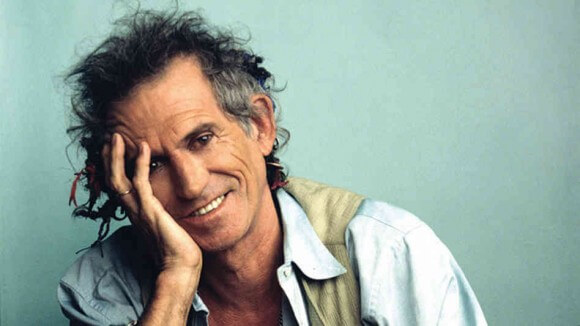
Keith Richards met the legendary American musician Gram Parsons at a London club in 1968 when Parsons was touring with the Byrds. Parsons was then 21, Richards 24. From Richards’s 2010 book, Life.
They [the Byrds] were touring, on their way to South Africa….. I think we went back to [art dealer] Robert Fraser’s to hang out, do some stuff…
At Fraser’s that night we started to talk about South Africa, and Gram asked me, “What’s this drift I’m getting since I got to England? When I say I’m going to South Africa, I get this cold stare.” He was not aware of apartheid or anything. He’d never been out of the United States. So when I explained it to him, about apartheid and sanctions and nobody goes there, they’re not being kind to the brothers, he said, “Oh, just like Mississippi?” And immediately, “Well, fuck that.” He quit that night. He was supposed to leave the next day for South Africa. So I said, You can stay here, and we lived with Gram for months and months, certainly the rest of that summer of 1968, mostly at Redlands.
Note to all ye of little faith. This was 18 years before the U.S. Senate voted for sanctions against South Africa, overriding President Ronald Reagan’s veto, and 22 years before apartheid collapsed.
“Life” was co-authored by James Fox. Full excerpt, including the drug bits, at google books. The Byrds went on to South Africa. The band had a different view of Parsons’s stance.


Phil: Isn’t the USA always so slow on the up-take? Its government does not govern the USA “as if people mattered” and it s/b no surprise that it treats the people of other countries even worse.
18 years for South Africa. How long for Cuba and Palestine? And Egypt. And unnumbered (and widely unknown inside the USA) countries in Africa.
Sigh.
The real key as to music folks reluctance to stand up for the Palestinians while they often support other freedom issues is what is not a revelation, that so many Jewish folks are involved in the music business, both as to funding music making and managing it. Only those who have already made the top performers list get to choose without death to their careers, and even then, most are still afraid to stand up for Palestinian freedom. It’s the same way in Hollywood re the film industry, and in the mainstream media industry. Anybody doubt this?
Yes, but Norman Finkelstein says the Palestinians have too maximalist a position for demanding full equality & democracy! He says they must calm down! They must at some level accept the status quo. Why? Because Gandhi, apparently.
This just shows that we could be at this for many years to come. And we probably will.
South Africa had that reputation already by the 1960s, yet they did not have nearly the amount of sympathizers in the American mainstream media that Zionism has today, nor did they have nearly as effective lobby as AIPAC is.
Still, the amount of progress the last five years alone has been amazing. I think more and more people understand that activism in America is at least as important in the short-to-medium term as it is in Palestine, because the American political establishment is the great enabler and benefactor of Israeli Apartheid, just as it was for white ruled-South Africa.
That’s why this website is so crucial, it’s a nexus of journalism, from an American context, on the conflict.
And that’s why Max Blumenthal’s book was so important; it was in many ways aimed at American liberal elites, the people holding the influence, and why the attacks were so ferocious on it precisely because the attackers understood the power it could hold, because the book was so well-reported and so thorough.
And there are encouraging signs. Rihanna changed her lyrics to “all I see is Palestine” – when performing in Tel Aviv. She quickly succumbed to pressure and her PR people made sure to retract it a day later. Still! It shows that progress is possible and preferably will reach more artists under the age of 50 (all due respect to Costello and Waters) within due time.
But I believe that Max is right when he says: this isn’t going to happen from within the Jewish community by and large, and Jewish critics are treated as outcasts. It’s going to be force from the outside; external pressure. Some of this pressure will be done by Jews, but it will be done from a position outside the mainstream concensus/establishment. In other words; the Peter Beinart position is doomed to fail. He can’t even call what is happening in Hebron by its name; Apartheid. He has also said this:
Such a person can never bring about change from the inside; he fundamentally do not differ a lot with the people he criticizes.
http://www.youtube.com/watch?v=vO8C9fqC3uk
Not to be confused with Graham Parker.
Keef!
Good on you, mate.